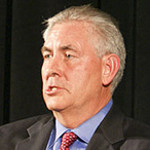It’s Time to Comment on Climate Risk Disclosure
“The noise in the sustainability space has gradually grown louder over the past few years, most often via forward-looking aspiration: bold commitments, proclamations of renewed corporate purpose, even a (nominal) redefinition of the corporation’s role in society,” reports Grant Harrison in the GreenBiz.
“But the past month marks the “suddenly” turning point. First, the SEC’s proposed rule on climate disclosure and, late last week, the International Sustainability Standards Board’s (ISSB) — the group chartered with creating a unified set of disclosure standards to meet investors’ need for sustainability information — delivery of proposals that create a comprehensive global baseline of corporate sustainability disclosures.”



